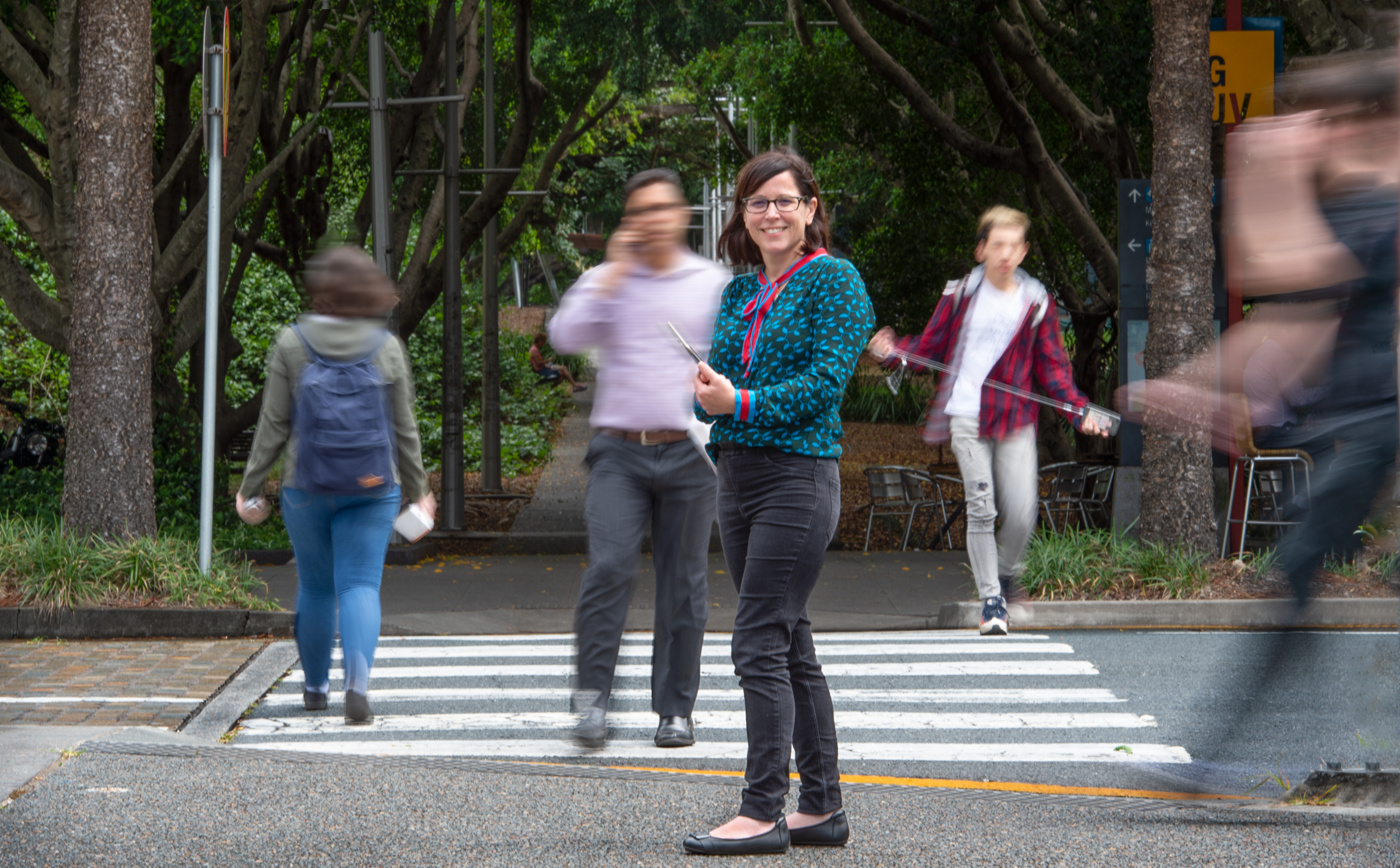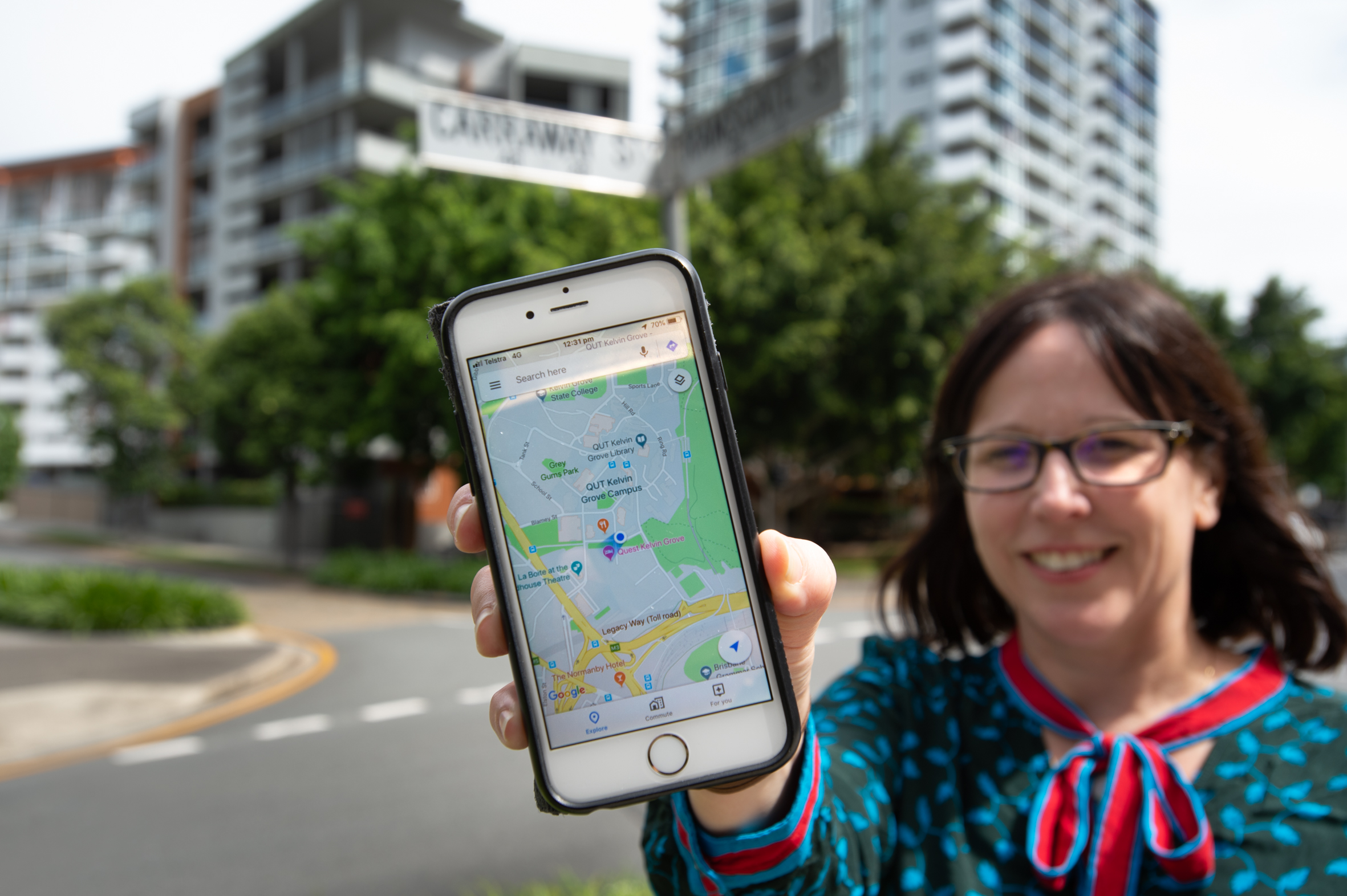
Most people would be outraged if a stranger secretly placed a tracker on their clothes to trace their every movement. So why are we so blasé about our mobile phones constantly revealing our location to apps and companies around the world?
A new geoprivacy study and survey led by QUT’s Digital Media Research Centre is asking Australians what they know about location metadata (or geodata) and how happy they are to knowingly – or unwittingly – let their location be tracked by the apps on their phone.
“A lot of it comes down to a basic question: How much are you willing to trade off privacy for convenience?” study leader Associate Professor Peta Mitchell said.
Associate Professor Mitchell is leading the project and has just returned from last month’s Association of American Geographers Annual Meeting in Washington DC where she gave a presentation on the rise of location intelligence.
In particular, she talked about the monetisation of data and how some apps collect location details and sell them to companies that then on-sell the data to advertisers – often without phone users’ knowledge or consent.
Now Associate Professor Mitchell and her research team have launched an Australia-wide survey on geoprivacy that is asking mobile phone users of all ages (from 13 up) about the apps that know their location.
“It’s not so much about posting when you’re at your favourite café,” she said.
“It’s about the apps we have on our phone that need access to our location for key features to work – and how we decide who to let in and who not to.”

The three-year project, Digital media, location awareness and the politics of geodata, has been funded by the Australian Research Council and will also include interviews with app developers and platform representatives.
It ultimately wants to come up with a guide to help people better understand geoprivacy and the Pandora’s Box that can be opened along with their apps.
The QUT survey will run until the end of May and covers popular location based apps including Airbnb, Apple Maps, Google Maps, Wayz, MapMyRun, Gumtree, Pokémon Go, Tinder, Uber Eats, and Weatherzone.
“It has questions about people’s phones, what location-based apps they have and how much they know and understand about location permission settings,” Associate Professor Mitchell said.
“It also has room to tell us about people’s positive and negative experiences with location data sharing.
“Through our work we’ve already come across plenty of anecdotes … such as the person who was doing jury duty and then, after the trial was over, arrived home and got a friend recommendation from Facebook for the person on trial! They’d both been geo-located at the courts for the same time over several days, thanks to their locations being turned on.”

One of the most infamous examples of location information having unintended outcomes was the Strava fitness app’s global heat map which showed user activity around the world, including military personnel’s locations, patrol routes and running routines in Middle East bases and other hot spots.
And in March this year an Australian-developed family tracking app was found to have been storing the real-time locations, names, and other identifying information of more than 230,000 users in an unprotected and openly accessible database.
But Associate Professor Mitchell said there were also positives about sharing locations on smartphones, such as the convenience of using maps applications in peak hour, or being able to share your location in real time with people you trust while you’re out at night or catching an Uber.

The Digital Media, Location Awareness and the Politics of Geodata project will use the survey and interview responses to develop resources to enhance public understanding of geodata and geoprivacy, as well as industry and policy recommendations that address the crucial issue of ‘location awareness’ in everyday digital media use.
The research is funded by the Australian Research Council’s Discovery Projects scheme and involves researchers from QUT, RMIT, University of Amsterdam, Western University and University of California, Irvine.
QUT Media contacts:
- Mechelle McMahon, media@qut.edu.au
- Rose Trapnell, media@qut.edu.au or 0407 585 901 (including after hours)


